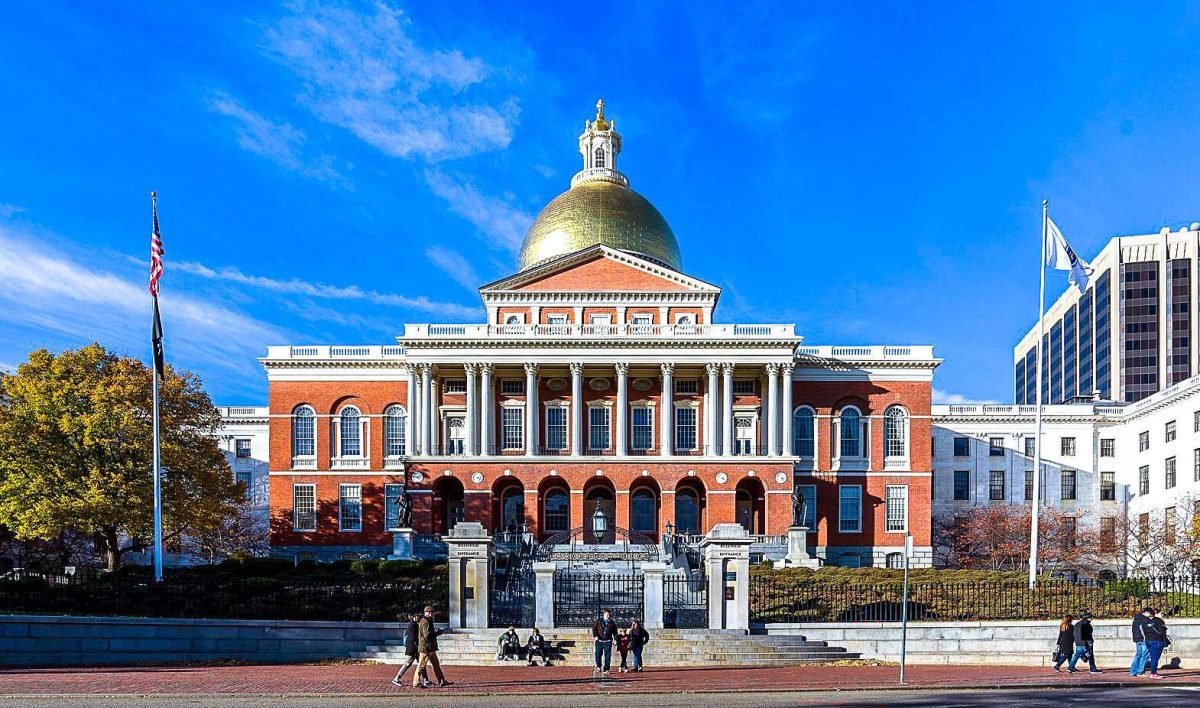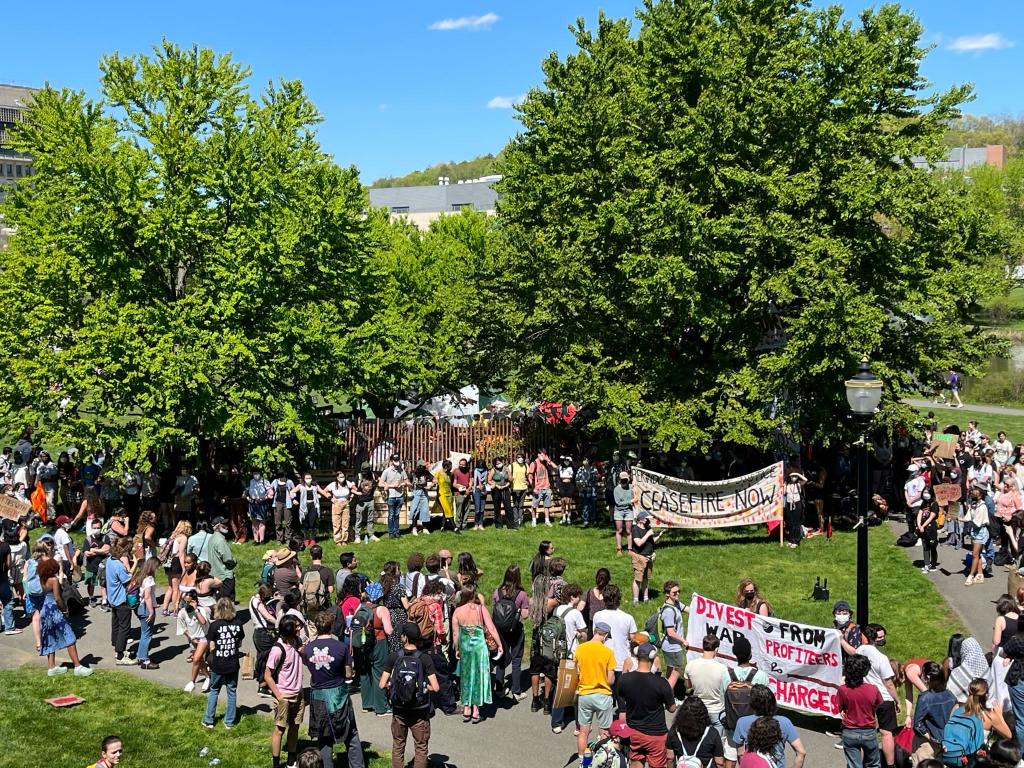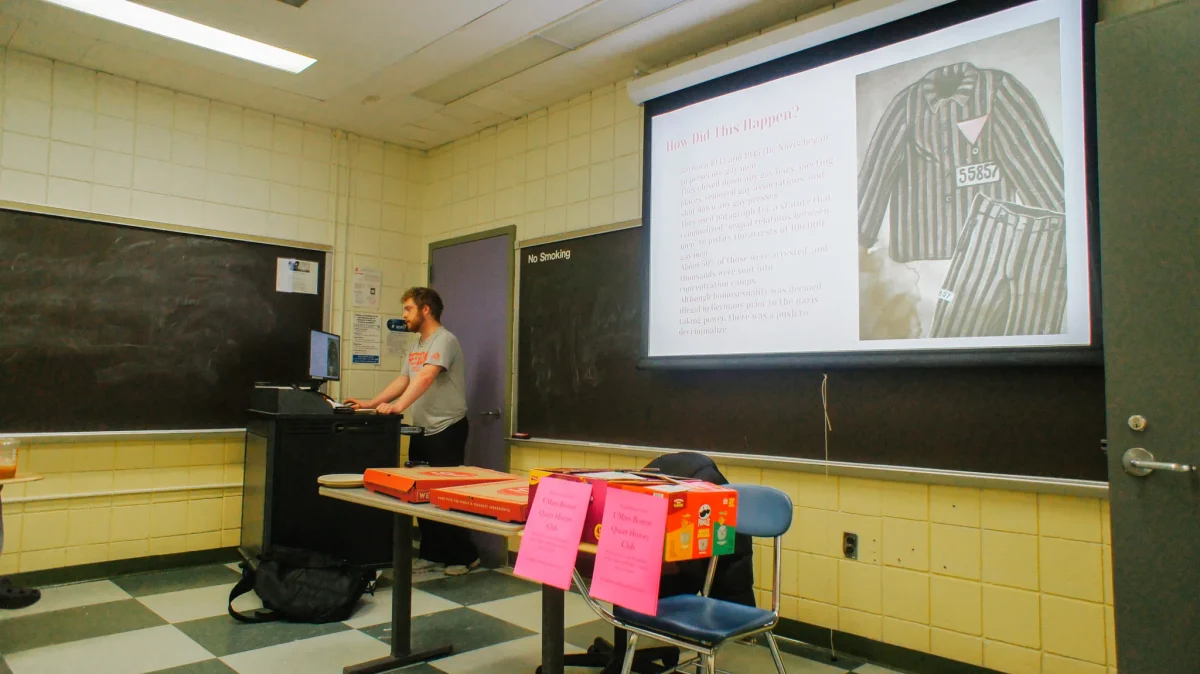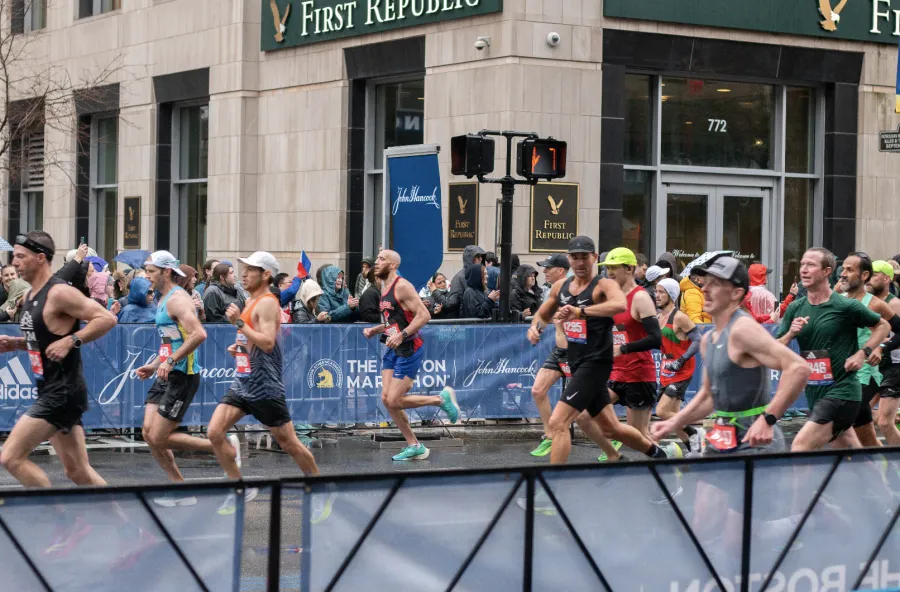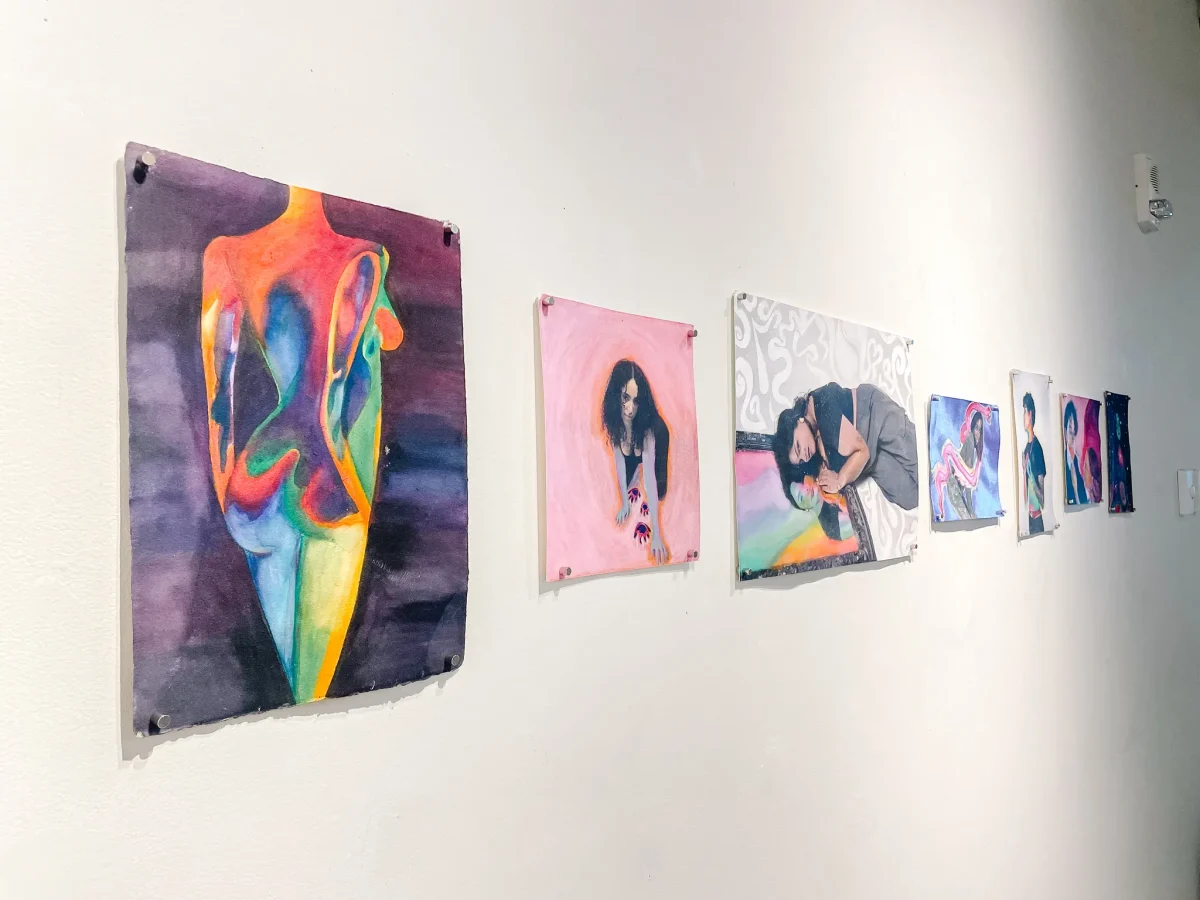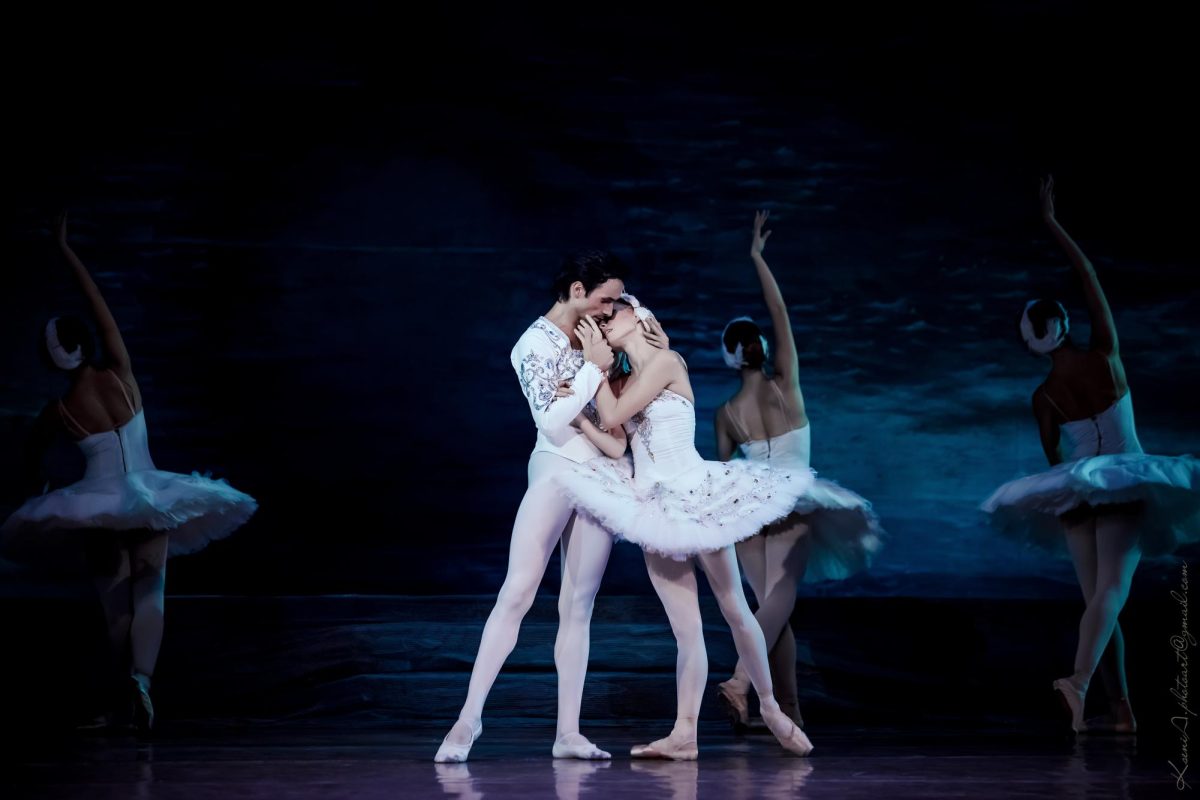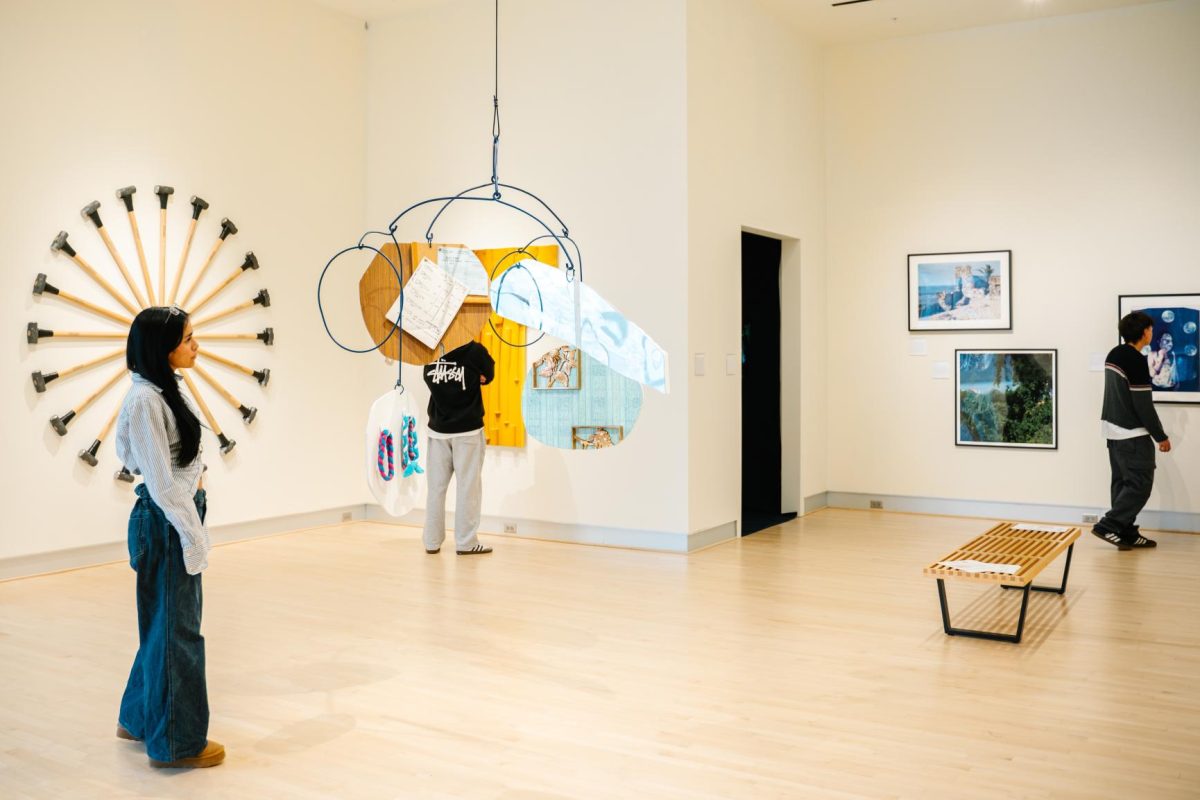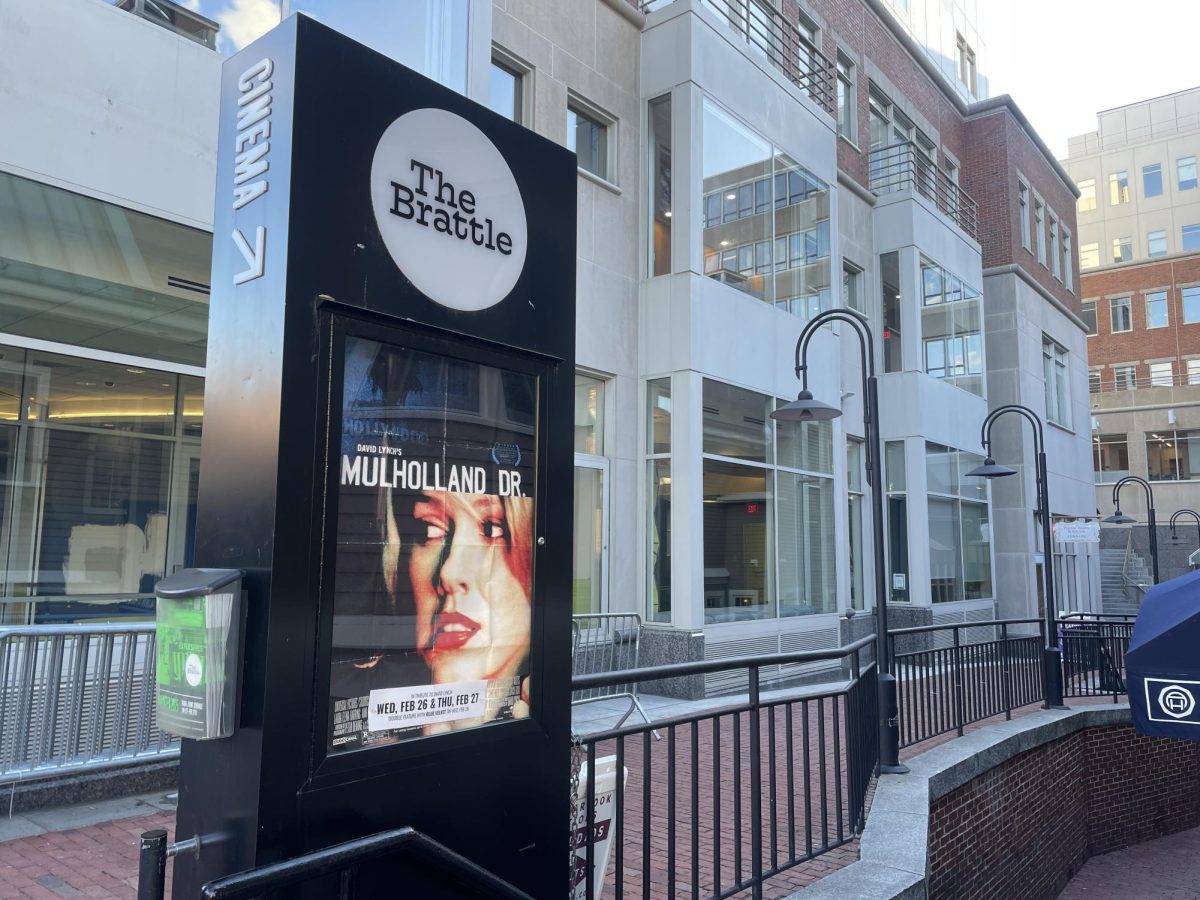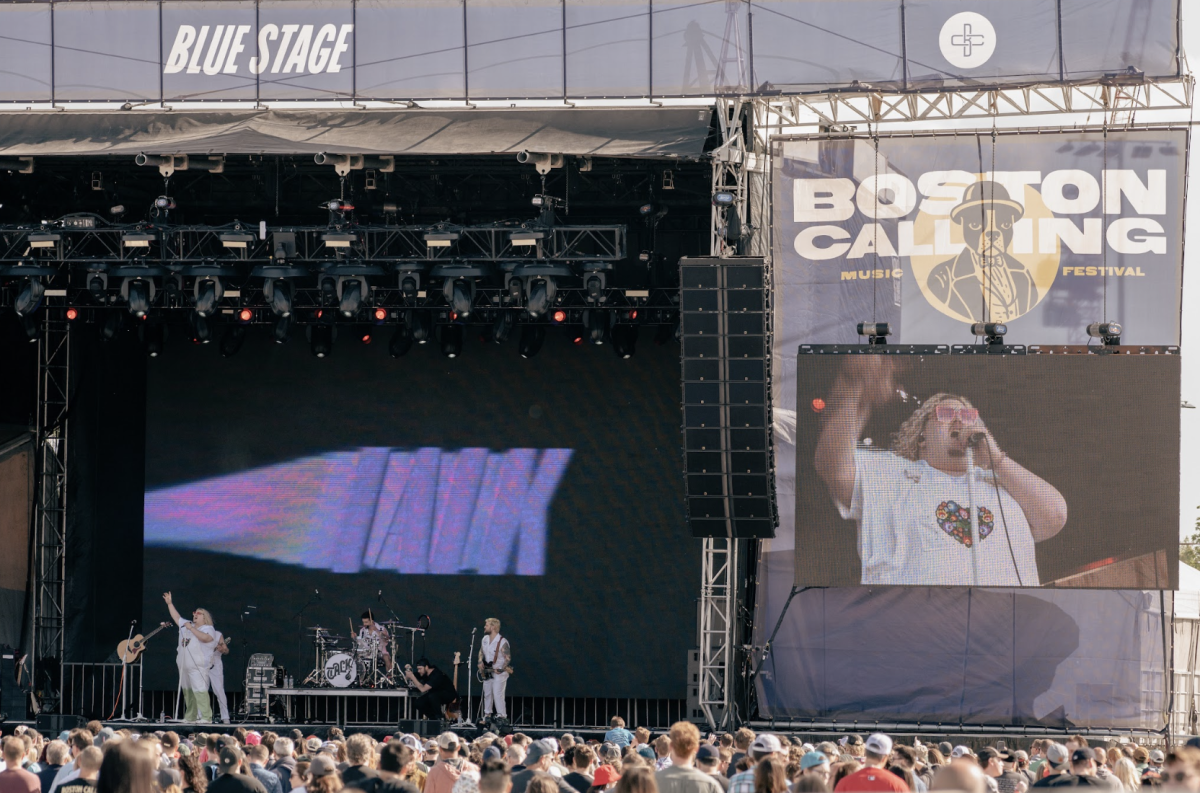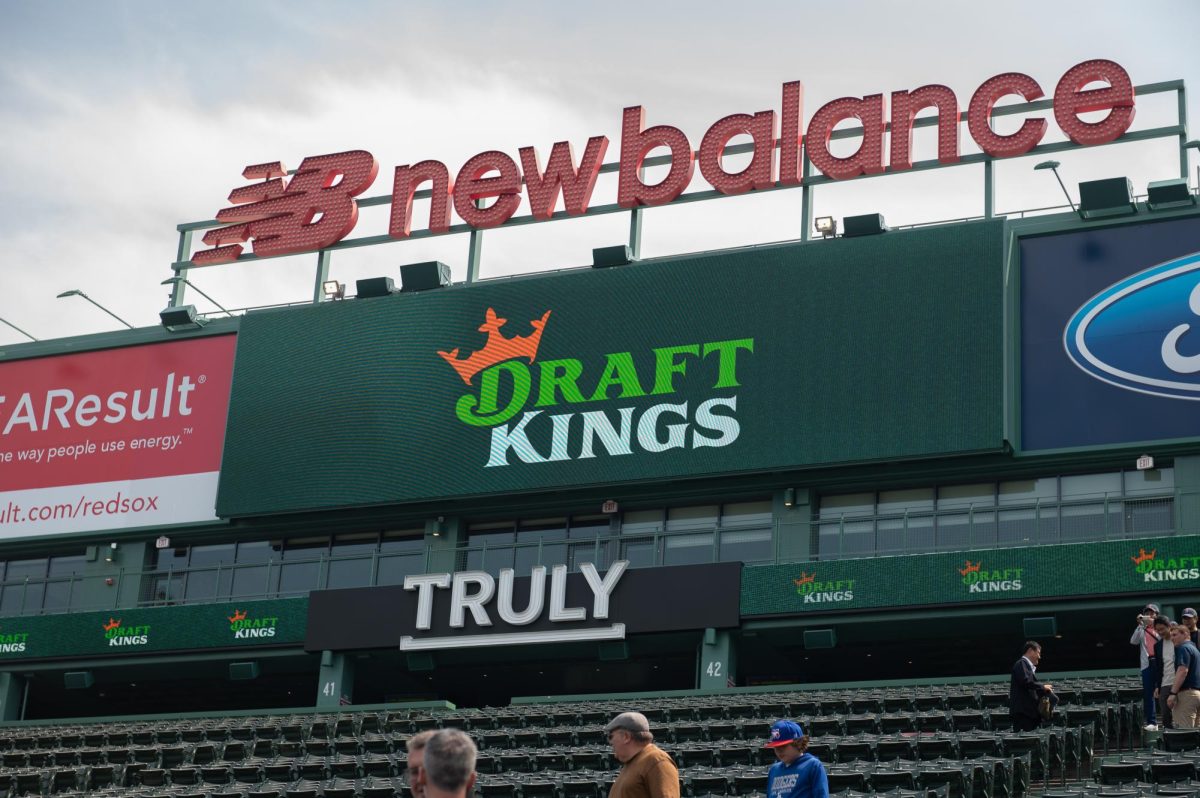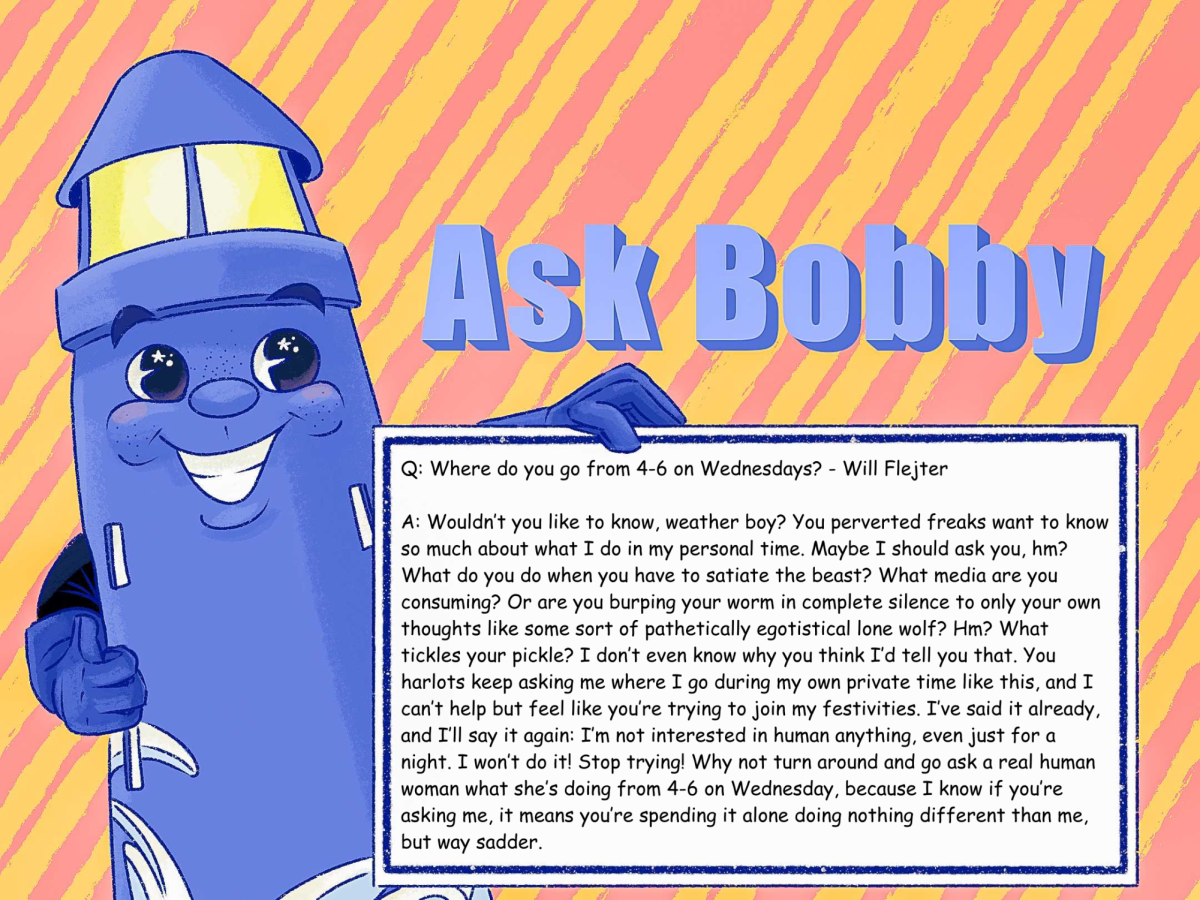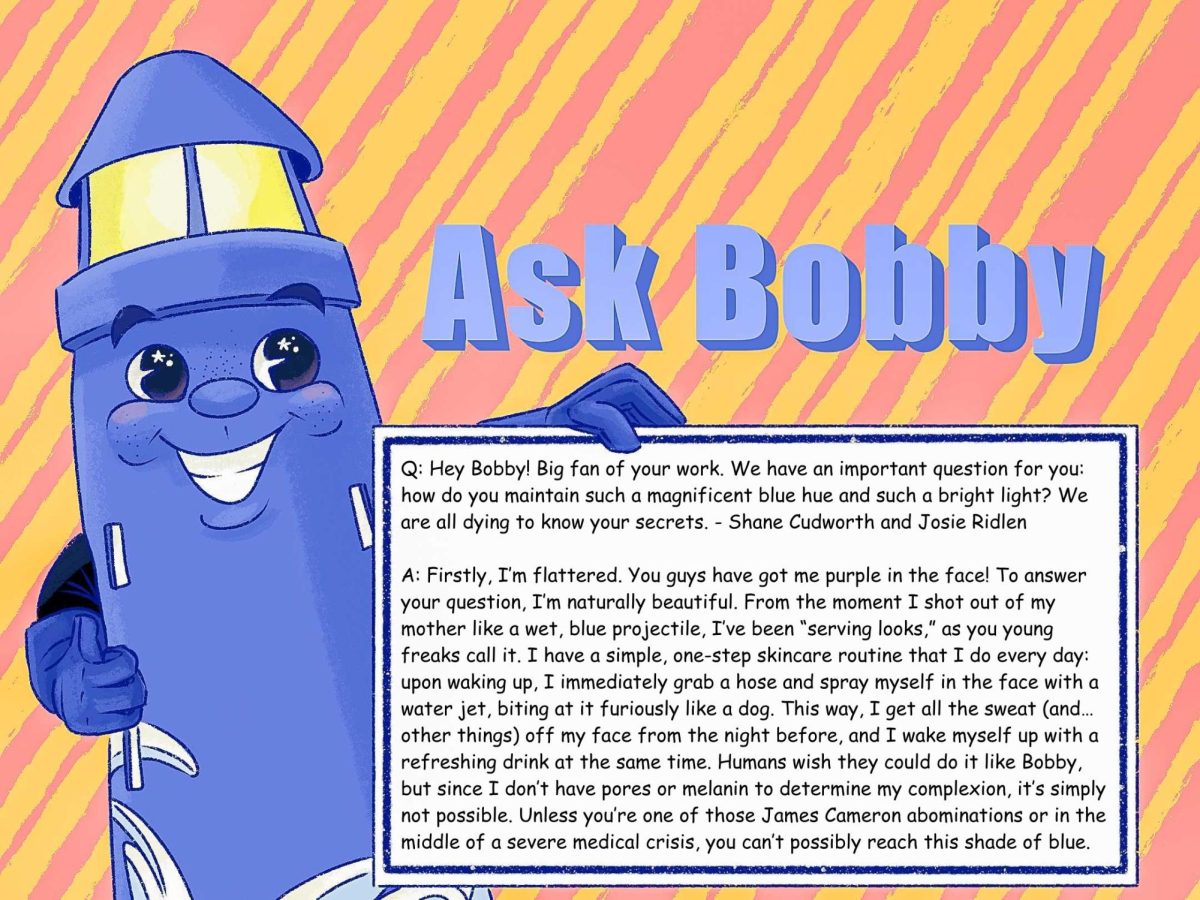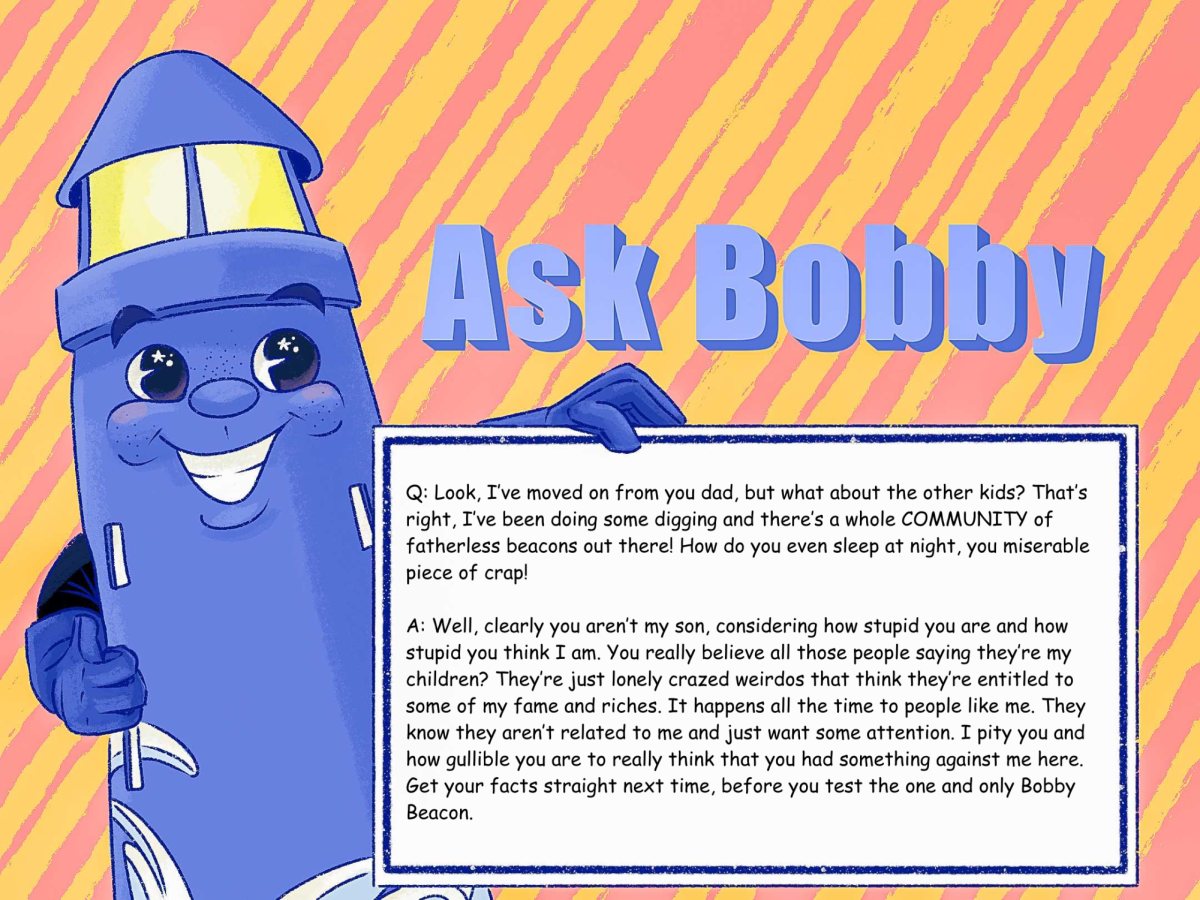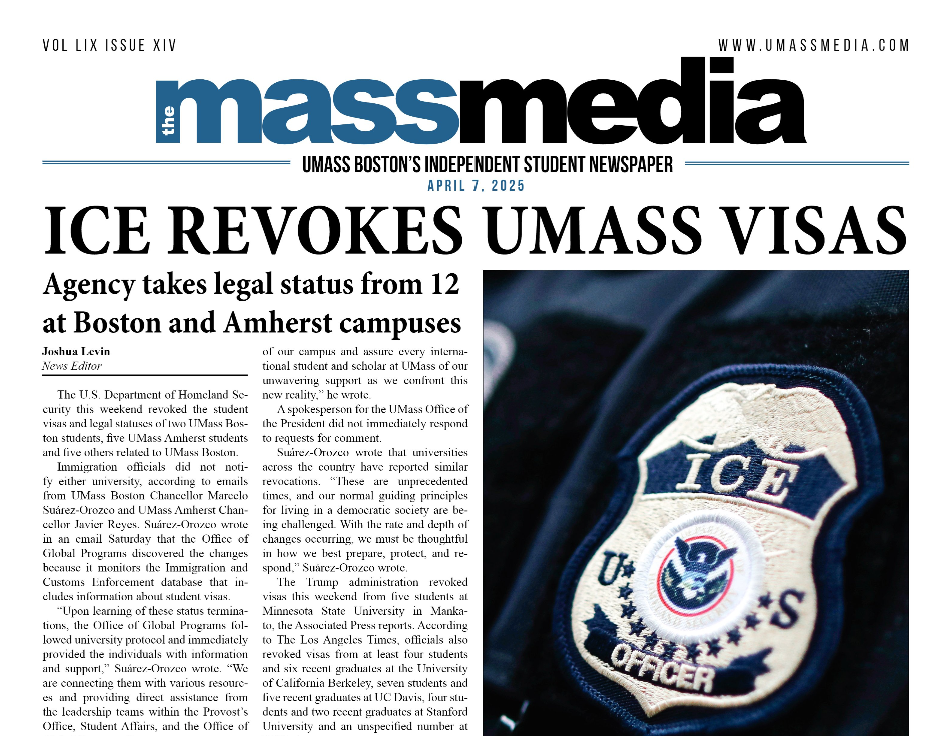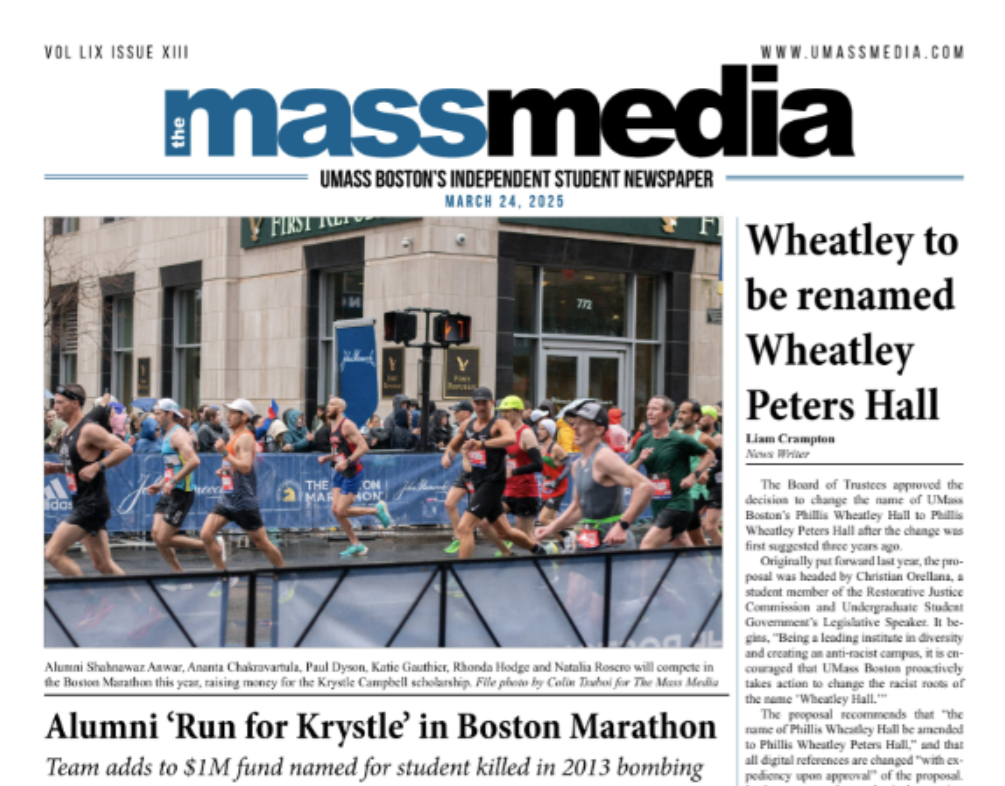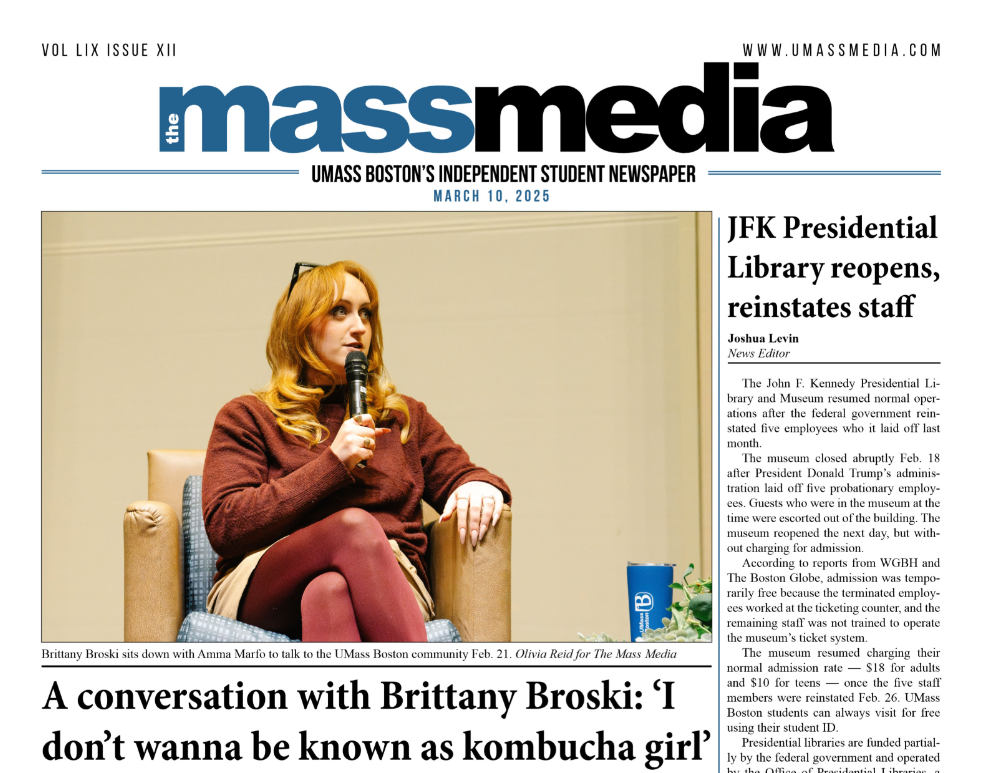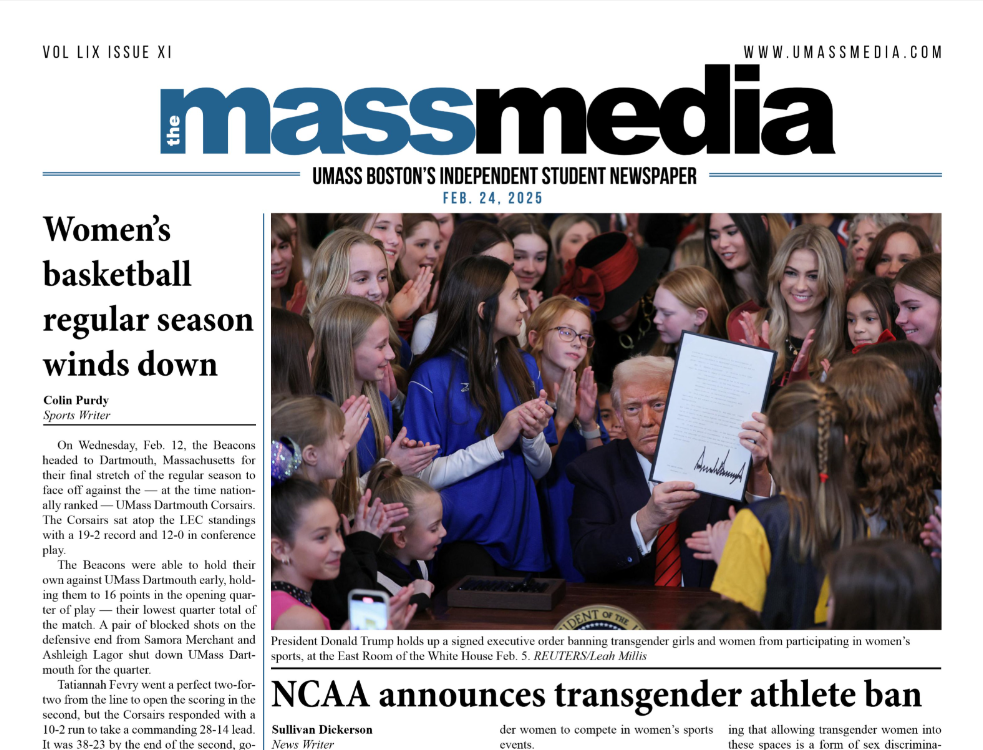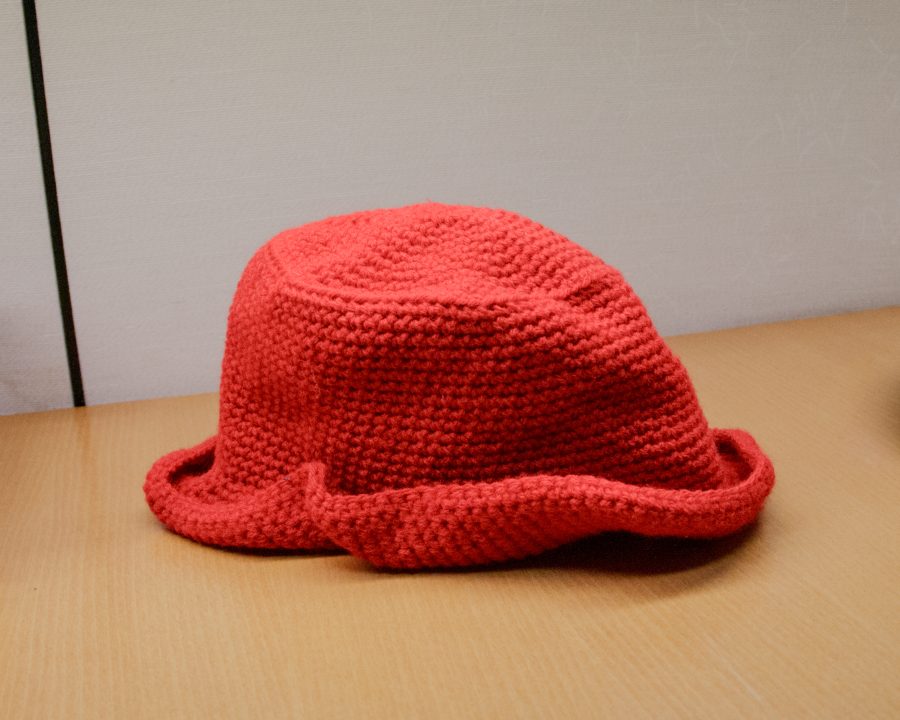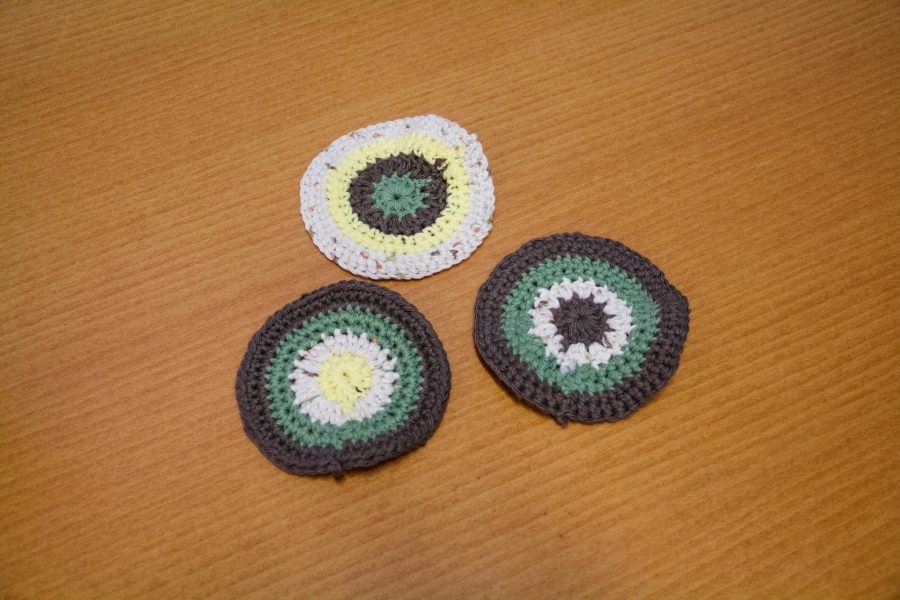The handmade revolution: younger generations’ take on old hobbies
A selection of clothing items and other accessories made by a UMass Boston student. Photo by Dom Ferreira / Photography Editor
November 4, 2021
When most people think of hobbies such as knitting, crochet, embroidery, cross-stitch and sewing, a similar image pops into the minds of the masses: old women in rocking chairs, spending the better parts of their days working on gifts for their grandchildren who will never appreciate the long hours and labor. However, a new group of people have emerged in the sphere of these crafts—and the young people entering the scene are doing so in a big way.
Though younger generations have always learned “domestic” hobbies from their elders—cooking, baking, sewing, embroidery, knitting and crochet just to name a few—and passed these crafts down to future generations, these hands-on activities have seen a cultural boom in the last two years. As the COVID-19 pandemic raged throughout the world, the youth turned away from their screens and towards yarn, embroidery floss and fabric to create pieces uniquely their own.
But why these hobbies? Plenty of hobbies saw a “renaissance” during, and well after, the pandemic—baking, gaming, reading, music and writing also saw an increase in interest during lockdown—however, none had the impact that these hobbies did.
Part of this massive growth in interest may have to do with the environmental awareness younger generations have. More people from the younger generations—Generation Z especially—have an awareness of the state the environment is currently in, as well as the need to reduce consumption and exploitation of workers in order to produce clothes for the fast-paced fashion world. They are more aware of the sweatshops and little pay the workers receive for their labor, and want to try their best to combat this in any way possible. As Marcia Veiga for Screenshot Media wrote:
“[…] after the disastrous events of the Rana Plaza factory seven years ago, which demonstrated the façade behind the fashion industry, the inhumane conditions of workers should continue being the key driver for why we must all do better. The pandemic has given like-minded creatives time to bloom; and with climate change still in full swing, people have started creating more and shopping less” (1).
Beyond knitting and crochet, other hands-on activities with a wearable outcome have gained traction for similar reasons. “Upcycling” existing pieces of clothing—meaning one would take something plain like a pair of track pants or a t-shirt, and cut and sew the pieces to create a new, more fashionable piece—or creating a new piece has skyrocketed in popularity, due to both an awareness of the ever-changing trend cycles of the fashion industry and the pandemic. As Lucy Macguire for Vogue Business said:
“Making your own clothes was on the rise before COVID-19, says Rose, but the pandemic has accelerated the hobby. An easy entry point to DIY fashion, tie-dye has been declared a quarantine trend, proliferated by tutorials on Gen Z favourite platforms YouTube and TikTok. The hashtag #tiedye has been viewed 584 million times on TikTok to date and a tie-dye kit is one of the biggest selling art and crafts products on Amazon” (2).
However, the environmental and activist perspectives are not the only reasons for the rise in these crafts. Celebrities can inspire their fans to create goods—especially if these goods are in limited stock or out of the price range for a typical consumer—and create a sense of community for these fans as they attempt to make their own version of a slice of their favorite star’s wardrobe. Though Harry Styles’ $1,702 patchwork cardigan has become the most well known version, Taylor Swift’s cardigan from her “folklore” album and Dua Lipa’s orange and white cropped checkerboard sweater have also gathered fan creations. The company who made Dua Lipa’s sweater, Wool and The Gang, also released a kit for fans to make the sweater themselves. The $130 kit contains needles, the pattern and sustainable yarn, which is available in over 20 colors for customization (3).
For those not interested in the activism aspect of crafting, or matching their favorite celebrity, handmade goods also offer many other benefits. Once these crafters get good enough at their skills, they can sell their finished goods online on sites like Etsy, Depop, Poshmark, or Mercari, or sell the instructions—known as patterns in the creating world—so others can make the items as well. However, if they don’t want to sell, they can also give the pieces away to friends and family and make their loved ones’ days a bit brighter with handmade goods. Finally, crafting also poses as a stress reliever, which may be in part due to its development and growth during COVID-19. During uncertain times, many people looked to ways to relieve stress and turn off their brains for a period of time, and knitting, crochet and sewing allowed for just that. As Cassidy George for BBC said:
“But knitting offers more than a sustainable way to be more self-sufficient and creative; it also benefits overall health and wellness. ‘Crafting is proven to reduce stress and anxiety, something we could all have a little help with right now. Sitting down to stitch can put you in an almost meditative state, we don’t say knitting is the new yoga for nothing!’ says Anna Veglio-White of Wool and the Gang” (4).
The handmade world has become a creative goldmine for Millennials and Gen Z. With innovative patterns, creative designs and celebrity influence, the youth are able, now more than ever, to stand out against the sweaters, blankets and granny squares of before. These younger creatives are sure to make waves in the homemade world, but for now, it’s certainly fun to watch them grow and develop their styles.
(1) https://screenshot-media.com/the-future/fashion/knitting-crochet-gen-z/
(2) https://www.voguebusiness.com/fashion/with-gen-z-under-lockdown-diy-fashion-takes-off
(3) https://www.standard.co.uk/insider/harry-styles-jw-anderson-knitting-tiktok-a4500136.html
(4) https://www.bbc.com/culture/article/20200630-how-knitting-became-cool
A selection of clothing items and other accessories made by a UMass Boston student.







